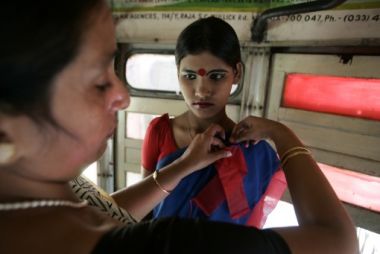World Aids Day: The Church must be an agent for change

Working alongside local churches to change communities demonstrates the power of the Church to be the "Good News", says Christian charity Compassion UK on World Aids Day.
Compassion works to release children from poverty in 26 countries, many of which are blighted by HIV/AIDS.
The charity supports a large number of HIV positive children and their families through a child sponsorship programme.
The power of the Church to inspire and establish change is a theory that underpins the work of Compassion, which "enables local churches to be agents of social change in their communities", not just places of worship for believers.
It says it is able to help far more people through working alongside churches, and supporting and resourcing them to meet the needs of their individual communities, than if it were working alone.
To mark World Aids Day today, Compassion is highlighting the importance of partnership with local churches around the world.
One such church it partners with, The Great Commission Church in Sagbado, Togo, has been able to provide free HIV testing through funding from Compassion.
"[It] does not just announce the Good News, it transforms the community," says Field Communications Specialist Bernard Gbagba.
Compassion is challenging churches across the UK to be more actively involved in social justice and transformation in this country.
This idea is the inspiration behind a recent report released by Westminster think-tank ResPublica entitled 'Holistic Mission: Social action and the Church of England', which highlights the capacity of the Church "to boost community action".
Endorsed by the Archbishop of Canterbury, the report calls for an end to the "cold war between Church and State" and it is thought that it could result in a radical expansion of the role of the Church in modern British society.
"The Government's plans for decentralisation, localism and community empowerment will never be complete, or effective without the biggest supporter of localism and community action - the Church," said Philip Blond, who compiled the report.
Mr Blond said the Church had the potential to be "the engine of [a] transformative approach to delivering services and support to vulnerable people", and has called on the government to help enable it to do so.











